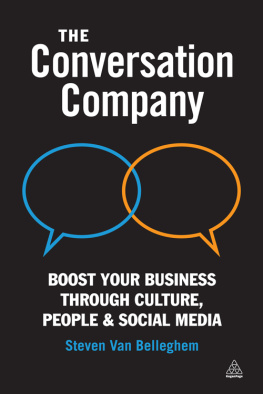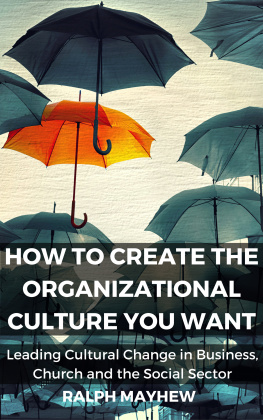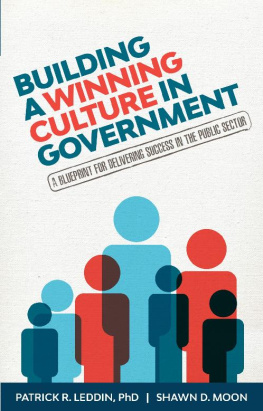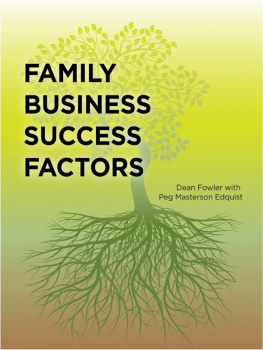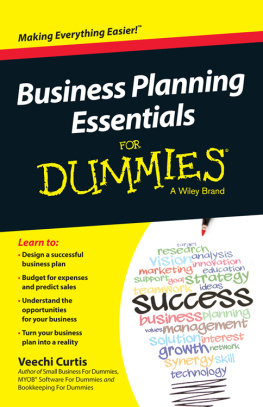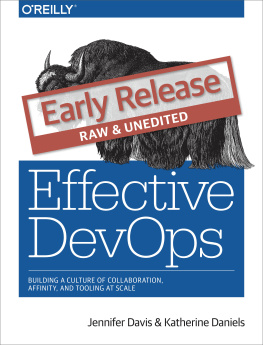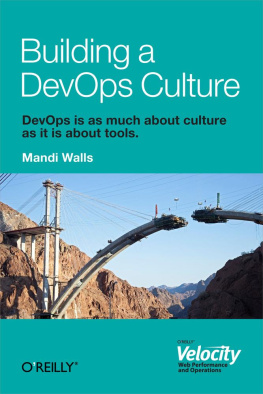Carolyn Taylor - Walking the Talk: Building a Culture for Success
Here you can read online Carolyn Taylor - Walking the Talk: Building a Culture for Success full text of the book (entire story) in english for free. Download pdf and epub, get meaning, cover and reviews about this ebook. year: 2005, publisher: Random House, genre: Business. Description of the work, (preface) as well as reviews are available. Best literature library LitArk.com created for fans of good reading and offers a wide selection of genres:
Romance novel
Science fiction
Adventure
Detective
Science
History
Home and family
Prose
Art
Politics
Computer
Non-fiction
Religion
Business
Children
Humor
Choose a favorite category and find really read worthwhile books. Enjoy immersion in the world of imagination, feel the emotions of the characters or learn something new for yourself, make an fascinating discovery.
- Book:Walking the Talk: Building a Culture for Success
- Author:
- Publisher:Random House
- Genre:
- Year:2005
- Rating:5 / 5
- Favourites:Add to favourites
- Your mark:
- 100
- 1
- 2
- 3
- 4
- 5
Walking the Talk: Building a Culture for Success: summary, description and annotation
We offer to read an annotation, description, summary or preface (depends on what the author of the book "Walking the Talk: Building a Culture for Success" wrote himself). If you haven't found the necessary information about the book — write in the comments, we will try to find it.
Walking the Talk: Building a Culture for Success — read online for free the complete book (whole text) full work
Below is the text of the book, divided by pages. System saving the place of the last page read, allows you to conveniently read the book "Walking the Talk: Building a Culture for Success" online for free, without having to search again every time where you left off. Put a bookmark, and you can go to the page where you finished reading at any time.
Font size:
Interval:
Bookmark:
How culture is established and sustained levers for culture change: behaviours, symbols, systems values and values hierarchy
Three phases of a typical culture change process investment required benefits
Culture research how to design qualitative and quantitative research measurement over time
The values-driven organisation descriptions of five cultures and their benefits: Achievement, One-Team, Customer-Centric, People-First, Innovative designing your desired culture
Gaining support from the top team how to build a business case the cost of poor culture
Mind-sets and behaviours and their impact on performance feelings, beliefs and values framework for a culture development plan
Walking the talk sources of feedback developing your own beliefs and values engaging your feelings increasing self-awareness
Role of leadership how to design interventions that will result in behaviour change influencing beliefs, values, feelings and self-awareness
Organisational systems and processes that impact culture and how to change them using symbols as a change agent
Using communication to reinforce culture building a communications plan
Options for managing culture governance structure measuring results advice for directors, the role of the Board when to use external help
How to change the culture of a division or team within an organisation how and when to encourage different cultures across the business
Managing culture during mergers, acquisitions, joint ventures and partnerships considering culture during due diligence how to build and implement a culture plan post merger
Issues for smaller organisations the influence of the owner managing rapid growth
Putting it all into practice 7-year culture journey of Lion Nathan performance benefits
Benefits and urgency of a focus on culture

T HIS book is the result of twenty years of work by teams in our organisation. In Corporate Vision, and recently, following our merger with Eales Basser Group, in the Mettle Group, we have developed our thinking on what drives culture and how to advise others to build the culture they want. When we started building our models, there was very little other work available in the business community. My colleagues and I spent many hours pooling the data we were collecting from our many clients, our observations of what makes some leaders able to build cultures that deliver the results they want and others to get no further than mouthing the words and building the slogans. From this we drew our conclusions about what it actually meant to walk the talk, and how long the leaders shadow really is.
The extraordinary thing I have found about our people is how much they care about clients the people who work in the organisations who employ our services. To be effective, we have to believe that cultures can change, and that leaders can make a difference. This faith in the better side of human nature has made our consultants go beyond the call of duty in their efforts to find the lever which will enable each client to effect change. In the process, precious insights are gained which gradually form patterns and conclusions. My role in this book has been to crystallise those patterns and to draw them into a framework which will make sense of this most mysterious of management disciplines: managing and building culture. For all those long hours round our boardroom table, all of the insights, reports, workshops, coaching, I want to thank all of our teams, present and past.
I am grateful to my partners in the newly formed Mettle Group Liza Spence, Ian Basser, John Eales for their additional support in the business while I took time to write this book. David Sherbon had faith in me when I was unknown in the market, and set up Corporate Vision with me at the very beginning. Thanks to Pete Mildenhall for the many years we had working together, for encouraging me to keep stretching and for his wonderful way of observing what makes people tick. Ashley Levinson for his wise business counsel over many years, and Peter OConnell for helping create Mettle. I am indebted to Cathy Glass, Liana di Stefano, Liza Spence, Tanya Gebbie for your help in building the models used in this book. Amanda Rudd wrote the beautiful proposal for the publishers, and persuaded me it was time well spent to present the idea for the book in its best possible light. As the book was drawing to a close, she checked all of my references, and helped ensure we credited ideas from their correct source. My assistant Bronwyn Kyriazis was the first to read and correct the manuscript and to encourage me to build in more stories, a theme that was continued by John Eales who suggested some additional stories of his own. Laura Barber created all of the diagrams. Ian Basser, thanks for the way you push to keep everything simple and pragmatic, and dont allow me to get too carried away with my own ideas. Rilla Moore read the book from the perspective of an HR professional, and Rosemary Kirkby gave me stories from one of the exciting pioneers of culture in Australia, Lend Lease. John Wright, recently retired CEO of Clydesdale and Yorkshire Banks, thank you for your unswerving support, both as a client and an advocate. Ann Sherry, CEO of Westpac in New Zealand, thank you for introducing me to the Random House team, and for your continual support and friendship. At Random House, thanks to Clare Smith, Tiffany Stansfield and Rina Gill in London, Margie Seale in Australia and Michael Moynahan in New Zealand.
I have always been a keen learner, particularly the kind of learning that is transformational in nature, and resulted in my changing my view of myself and the world, in a fashion that helped me shift gear in my life. Three people have been teachers of this kind for me Walter Bellin, Robert Kiyosaki and my early spiritual teacher, Gururaj. Thank you.
A special thanks to Gordon Cairns, Bob Barbour and the team at Lion Nathan for allowing me to showcase their cultural achievements in , for giving their time to help pull that chapter together. Participating in their courageous and determined effort to turn their culture around has been a highlight of my career.
My most important acknowledgements go to the people who you will hear described in many guises throughout this book: The leaders of organisations in the United Kingdom, Australia, New Zealand, Asia and the US with whom I have had the privilege of working during my career. I have always considered it an act of great trust to allow me to work with you, with your teams, and in your organisations. It has always felt an honour to be invited in, and even more so to work with you as individual leaders, give you my trademark brutally frank feedback, and offer advice as to how to change yourselves, influence your people and change your cultures. You have allowed me to place you in situations which I know you sometimes found uncomfortable, and participated in them because you had faith that I had the best interests of your organisations at heart, and would not let you down. Thank you for that. I have left you un-named in this book, for reasons I explain in the introduction, but I hope you enjoy playing the game of spot the leader!
There is an element of faith required to be successful at using culture as a key plank of a business strategy, and I acknowledge those who have taken this most personal of strategies to achieve the performance their business demands. The rewards are considerable, the competitive advantage almost impossible to replicate, but undoubtedly it asks more of a leader than some of the more traditional paths. I acknowledge every leader who takes it on.
Font size:
Interval:
Bookmark:
Similar books «Walking the Talk: Building a Culture for Success»
Look at similar books to Walking the Talk: Building a Culture for Success. We have selected literature similar in name and meaning in the hope of providing readers with more options to find new, interesting, not yet read works.
Discussion, reviews of the book Walking the Talk: Building a Culture for Success and just readers' own opinions. Leave your comments, write what you think about the work, its meaning or the main characters. Specify what exactly you liked and what you didn't like, and why you think so.


